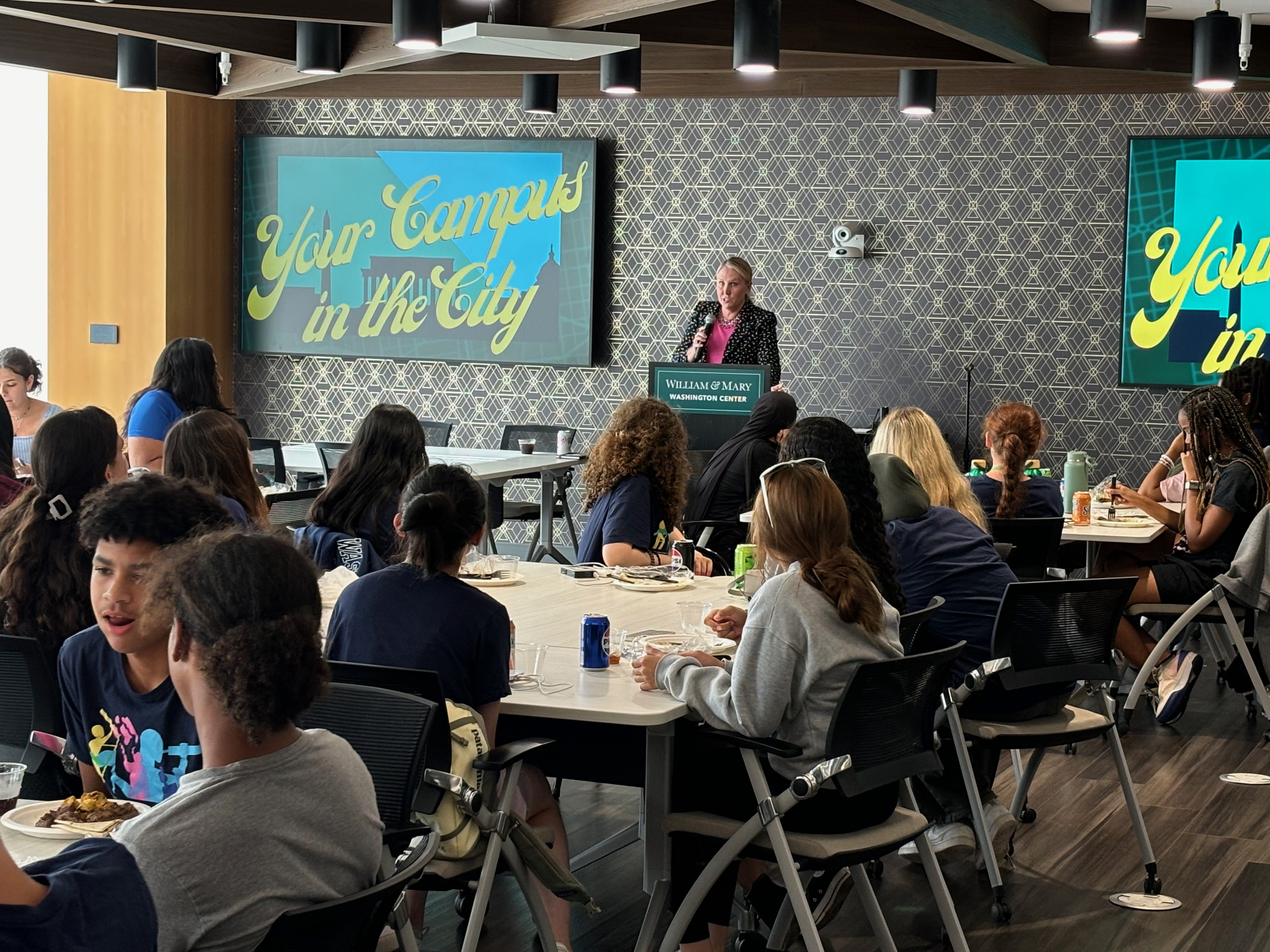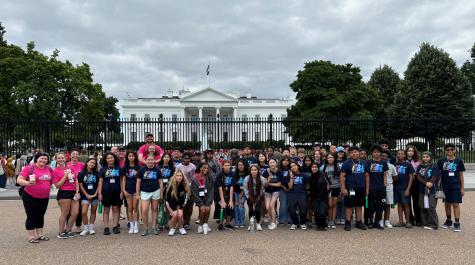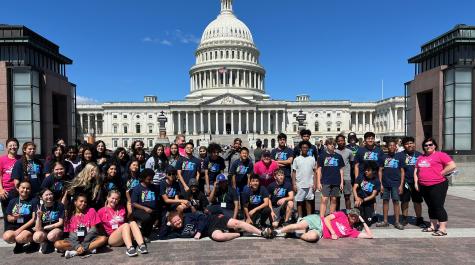The Optimist Project: Studying intergroup relations in U.S. history and a strength-based approach to leadership
As the July Fourth fireworks in Colonial Williamsburg drew thousands of visitors from across the United States, a group of students at William & Mary (W&M) chose to stay in their dorm rooms to finish their research projects instead. They were finalizing group presentations demonstrating the skills and knowledge gained from an intensive, two-week summer learning experience. Choosing an evening of group work over a fun summer outing might sound typical of college students, but it is far less typical for students in this age group. A cohort of 41 exceptional rising ninth graders from the prestigious Jack Kent Cooke Foundation’s Young Scholars Program, they visited William & Mary this summer to experience educational opportunities enhancing their leadership. Their cohort experience began with The Optimist Project (TOP), a new initiative sponsored by the Jack Kent Cooke Foundation and developed and administered by the W&M School of Education’s Center for Gifted Education (CFGE).
 TOP introduces participants to critical thinking, leadership and civil discourse through immersion in history. As the name implies, the project emphasizes the positive aspects of leadership, such as consensus building and bridging cultural differences. Clinical Assistant Professor Chandra Floyd Ph.D. ’20 developed the curriculum. In addition to classroom lessons, students explored intergroup relations through hands-on history, visiting important sites such as Colonial Williamsburg and Jamestown, where they examined the earliest cultural encounters between American Indians, English colonists and Africans. These experiences were paired with discussions on how historical events inform current societal challenges, encouraging students to think critically about the past and their role in shaping the future.
TOP introduces participants to critical thinking, leadership and civil discourse through immersion in history. As the name implies, the project emphasizes the positive aspects of leadership, such as consensus building and bridging cultural differences. Clinical Assistant Professor Chandra Floyd Ph.D. ’20 developed the curriculum. In addition to classroom lessons, students explored intergroup relations through hands-on history, visiting important sites such as Colonial Williamsburg and Jamestown, where they examined the earliest cultural encounters between American Indians, English colonists and Africans. These experiences were paired with discussions on how historical events inform current societal challenges, encouraging students to think critically about the past and their role in shaping the future.
"The best aspect of TOP was learning about history in a way that I have never been taught,” said one student. “I have learned about the topics, but have never gone in depth like I did in this program.” Another student shared a similar sentiment: “I really like the topic of colonization! I think that these topics are very important to be discussed and to be exposed to. Teachers don’t normally go this deep or into real-world situations, so it was a great eye-opening experience.”
A highlight of the program was a field trip to Washington, D.C., where students visited landmarks such as the White House, the Library of Congress, the National Museum of African American History and Culture, and the Black Lives Matter Plaza. At the William & Mary Washington Center, students had the opportunity to hear from Jessica Taylor '97, current chief of the United States Park Police. Taylor shared her leadership journey and engaged in a Q&A session, where students asked insightful questions such as, “What is your leadership style?" and “As a government officer, how do you manage conflict between First Amendment and Confidentiality Agreement?”
At the heart of The Optimist Project is its emphasis on collaborative learning. Students were encouraged to work together, engage in group discussions and debates, and present their ideas to peers, teachers, staff and parents. Associate Professor of School Psychology Janise Parker opened the two-week session with a lesson on appreciative inquiry, and the students’ final presentations incorporated this method to address contemporary problems of intergroup conflict.
“We incorporate group work rather than individual work, because students need to learn how to work with people who are different than they are,” said Mihyeon Kim, CFGE director of precollegiate programs.
As their final presentations demonstrated, The Optimist Project provides a space where young minds are challenged to think critically about society’s most pressing issues and propose solutions with the depth and nuance typically expected from older students. Their final projects tackled complex issues such as homelessness, child abuse, racial justice and social media addiction with a level of critical thinking far from typical for their age. For example, one group delved into the issue of child abuse in Virginia's foster care system, citing 400,000 cases of abuse reported by the Children’s Advocacy Institute at the San Diego School of Law. Their proposed solutions included forming partnerships with non-profit organizations and raising awareness through youth activism and community programs. Another group presented on racial disparity in the criminal justice system, focusing on the racial biases embedded in mass incarceration and bail systems in the U.S. The group used historical context, tracing the roots of the issue from the post-Civil War Black Codes to present-day conflicts in law enforcement. Their solution-oriented approach emphasized the need for bail reform, policy changes and deeper legal system overhauls.
When one student became too nervous to speak during her presentation, she received a wave of support from the audience, with peers cheering her on until she regained her confidence. This moment spoke volumes about the value of their shared learning experience. The group as a whole came together demonstrating leadership skills that emphasize empathy, teamwork and communication across differences — qualities essential to building strong, democratic communities.
“Classes allowed me to be a better leader and a collaborator. Even though there were some disagreements, we all learned something from it," one student reflected, capturing the essence of the educational experience offered by The Optimist Project. The Cooke Foundation Young Scholars Program is a selective five-year, pre-college scholarship for students with financial need. Cooke-sponsored summer projects like The Optimist Project are one aspect of a comprehensive mentorship and leadership program designed to support these gifted young scholars. As they progress through high school, they will continue to engage in leadership training, civic discourse and group projects aimed at solving real-world challenges. The Cooke Foundation and the CFGE have created an opportunity for these young minds to grow not only academically but also as future leaders of a democratic society.

